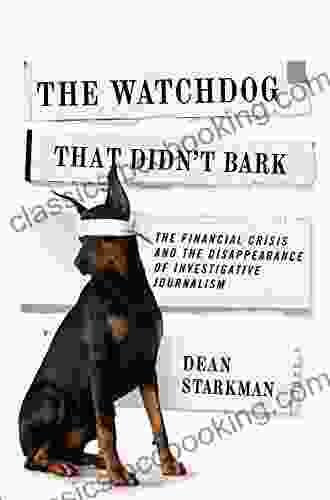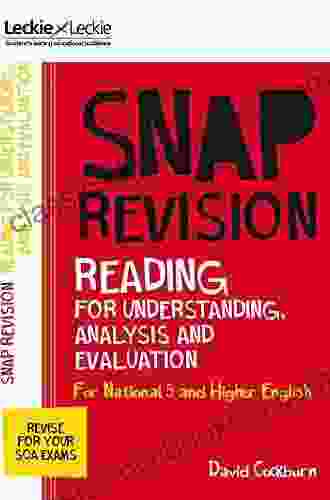The Financial Crisis and the Disappearance of Investigative Journalism

The global financial crisis of 2008 was a watershed moment in the history of finance and journalism. It marked a turning point in the relationship between the media and Wall Street, and it signaled the decline of investigative journalism.
In the years leading up to the crisis, investigative journalists had played a vital role in exposing the systemic flaws in the financial system. The media was slow to pick up on the story, and it was only after the crisis hit that the public learned the full extent of the wrongng.
The aftermath of the crisis has seen a sharp decline in investigative journalism. The number of investigative units at newspapers has been cut in half, and the number of investigative reporters has declined by a similar amount. This is due in part to budget cuts in the media industry. While the shift away from advertising to digital consumption has removed critical revenue streams for news organizations, other factors like the rise of public relations and corporate secrecy have also negatively impacted coverage.
4.3 out of 5
| Language | : | English |
| File size | : | 885 KB |
| Text-to-Speech | : | Enabled |
| Screen Reader | : | Supported |
| Enhanced typesetting | : | Enabled |
| Word Wise | : | Enabled |
| Print length | : | 382 pages |
| Lending | : | Enabled |
The decline of investigative journalism is a major threat to democracy. Investigative journalists play a vital role in holding the powerful to account and exposing wrongng. Their absence makes it more difficult for the public to make informed decisions about their lives and their government.
Investigative journalism is a type of journalism that involves the in-depth investigation of a particular topic, usually over a long period of time. Investigative journalists use a variety of techniques to uncover the truth, including interviews, document research, and data analysis.
Investigative journalism is essential for a healthy democracy. It provides the public with the information they need to make informed decisions about their lives and their government. Investigative journalists have played a vital role in exposing corruption, uncovering wrongng, and holding the powerful to account.
Some of the most famous examples of investigative journalism include the Watergate scandal, the Pentagon Papers, and the Enron scandal. These investigations helped to change the course of history, and they continue to serve as important examples of the power of journalism.
The decline of investigative journalism is a complex phenomenon. There are a number of factors that have contributed to this decline, including:
- Budget cuts: The media industry has been hit hard by budget cuts in recent years. This has led to a reduction in the number of investigative units at newspapers and the number of investigative reporters.
- The rise of public relations: In recent years, the public relations industry has become increasingly powerful and sophisticated. This has made it more difficult for investigative journalists to gain access to information.
- Corporate secrecy: Corporations have become increasingly secretive in recent years. This has made it more difficult for investigative journalists to uncover wrongng.
- The decline of trust in the media: The public's trust in the media has declined in recent years. This has made it more difficult for investigative journalists to get their stories published.
The decline of investigative journalism is a major threat to democracy. Investigative journalists play a vital role in holding the powerful to account and exposing wrongng. Their absence makes it more difficult for the public to make informed decisions about their lives and their government.
There are a number of things that can be done to reverse the decline of investigative journalism. These include:
- Increasing funding for investigative journalism: The government and private foundations can provide funding for investigative journalism. This would help to support the production of high-quality investigative journalism.
- Strengthening the public's trust in the media: The media needs to do a better job of earning the public's trust. This can be done by producing accurate and unbiased journalism.
- Enacting laws to protect investigative journalists: The government should enact laws to protect investigative journalists from retaliation. This would help to create a more favorable environment for investigative journalism.
The decline of investigative journalism is a serious problem, but it is not insurmountable. By taking action, we can help to reverse this decline and ensure that investigative journalism continues to play a vital role in our democracy.
The financial crisis of 2008 was a watershed moment in the history of finance and journalism. It marked a turning point in the relationship between the media and Wall Street, and it signaled the decline of investigative journalism.
The decline of investigative journalism is a major threat to democracy. Investigative journalists play a vital role in holding the powerful to account and exposing wrongng. Their absence makes it more difficult for the public to make informed decisions about their lives and their government.
There are a number of things that can be done to reverse the decline of investigative journalism. These include:
- Increasing funding for investigative journalism
- Strengthening the public's trust in the media
- Enacting laws to protect investigative journalists
By taking action, we can help to reverse this decline and ensure that investigative journalism continues to play a vital role in our democracy.
4.3 out of 5
| Language | : | English |
| File size | : | 885 KB |
| Text-to-Speech | : | Enabled |
| Screen Reader | : | Supported |
| Enhanced typesetting | : | Enabled |
| Word Wise | : | Enabled |
| Print length | : | 382 pages |
| Lending | : | Enabled |
Do you want to contribute by writing guest posts on this blog?
Please contact us and send us a resume of previous articles that you have written.
 Book
Book Novel
Novel Page
Page Chapter
Chapter Text
Text Story
Story Genre
Genre Reader
Reader Library
Library Paperback
Paperback E-book
E-book Magazine
Magazine Newspaper
Newspaper Paragraph
Paragraph Sentence
Sentence Bookmark
Bookmark Shelf
Shelf Glossary
Glossary Bibliography
Bibliography Foreword
Foreword Preface
Preface Synopsis
Synopsis Annotation
Annotation Footnote
Footnote Manuscript
Manuscript Scroll
Scroll Codex
Codex Tome
Tome Bestseller
Bestseller Classics
Classics Library card
Library card Narrative
Narrative Biography
Biography Autobiography
Autobiography Memoir
Memoir Reference
Reference Encyclopedia
Encyclopedia David H Levy
David H Levy David A Ebert
David A Ebert David Shalleck
David Shalleck Danielle L Schultz
Danielle L Schultz David Talbot
David Talbot David Langlieb
David Langlieb David Mikics
David Mikics David C Evans
David C Evans David M Guss
David M Guss David Vogel
David Vogel David Tracey
David Tracey Debbie Dadey
Debbie Dadey David Helvarg
David Helvarg David J Miklowitz
David J Miklowitz Daniel Schulman
Daniel Schulman Danny Wallace
Danny Wallace David Sheward
David Sheward David Spinks
David Spinks David Lusted
David Lusted Daniel Seymour
Daniel Seymour
Light bulbAdvertise smarter! Our strategic ad space ensures maximum exposure. Reserve your spot today!

 James JoyceUnveil the Enigmatic World of Doctor Strange: Exploring the Marvelous Comics...
James JoyceUnveil the Enigmatic World of Doctor Strange: Exploring the Marvelous Comics...
 Anton FosterOne Man's Extraordinary Odyssey in Japan: A Captivating Tale of Adventure and...
Anton FosterOne Man's Extraordinary Odyssey in Japan: A Captivating Tale of Adventure and... Rex HayesFollow ·16.2k
Rex HayesFollow ·16.2k Oscar WildeFollow ·18.6k
Oscar WildeFollow ·18.6k Truman CapoteFollow ·13.1k
Truman CapoteFollow ·13.1k DeShawn PowellFollow ·13.6k
DeShawn PowellFollow ·13.6k Robert BrowningFollow ·9.3k
Robert BrowningFollow ·9.3k George BellFollow ·5.5k
George BellFollow ·5.5k Neil GaimanFollow ·8.3k
Neil GaimanFollow ·8.3k Alan TurnerFollow ·5.3k
Alan TurnerFollow ·5.3k

 Cameron Reed
Cameron ReedHow to Know When Language Deceives You
Unmasking the Power of...

 Robbie Carter
Robbie Carter50 Things To Know About Planning Home Schooling...
: The Power of Hands-On Learning Embarking...

 Julio Cortázar
Julio CortázarCalculus: Single and Multivariable, 8th Edition — The...
Calculus is the...

 Jaime Mitchell
Jaime MitchellBunnicula and Friends: A Spooktacular Tale of Mystery and...
In the quaint little town of Celeryville,...

 Josh Carter
Josh CarterPeppa Easter Egg Hunt: Join Peppa Pig on an...
Get ready for...

 Donovan Carter
Donovan CarterBoy Called Dickens: A Journey into the Childhood of a...
Delving into the...
4.3 out of 5
| Language | : | English |
| File size | : | 885 KB |
| Text-to-Speech | : | Enabled |
| Screen Reader | : | Supported |
| Enhanced typesetting | : | Enabled |
| Word Wise | : | Enabled |
| Print length | : | 382 pages |
| Lending | : | Enabled |








